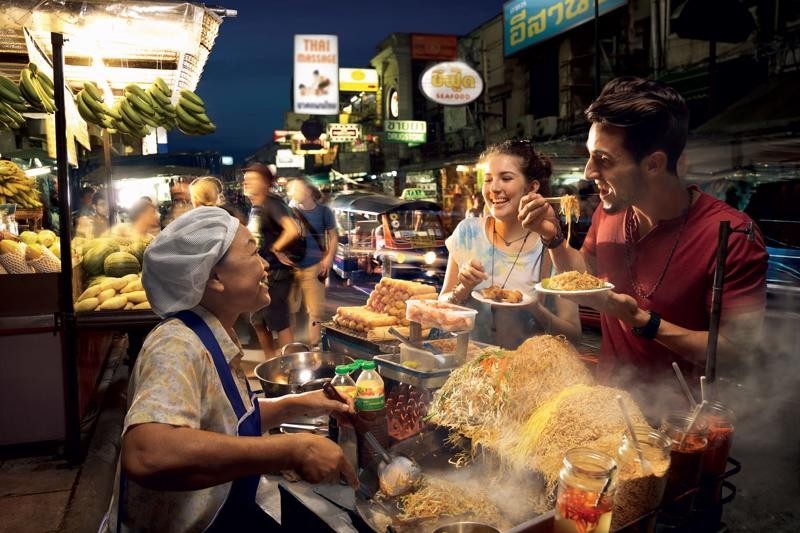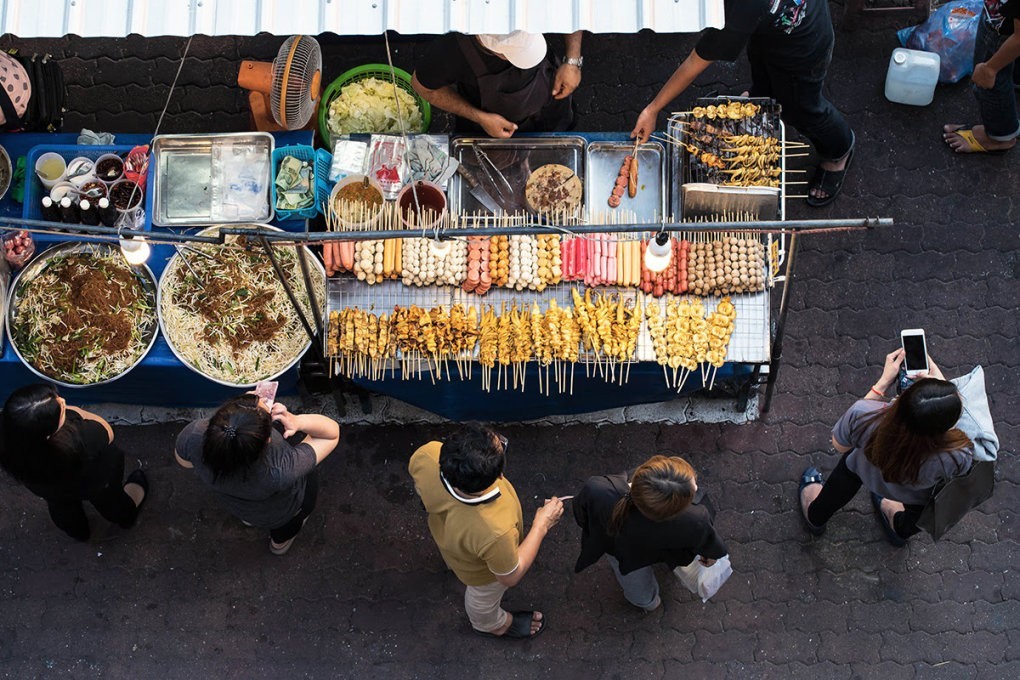
'Thai food, global culinary' - 'Soft power' in Thailand’s tourism development
Latest
 |
| "Thai food, global culinary" - 'Soft power' in Thailand’s tourism development: Culinary is among factors creating Thai tourism quality and brand. (Photo: Travel Weekly) |
Countries with developed tourism industries have long formed and developed many unique culinary cultural festivals following the tendency of tourists’ experiencing culinary.
According to United Nation World Tourism Organization (UNWTO), up to one-third of the spending structure of tourists is on culinary needs. Cuisine is among factors that contributes to the quality and brand of tourism. Exploiting culinary cultural values is an indispensable part of each country's tourism business.
Tourist attraction factors
Diverse and rich cuisine is one of the main factors attracting tourists from all over the world to Thailand. This country is a typical example of a country that always focuses on protecting culinary culture and food safety.
Thailand is a typical example of focusing on protecting culinary culture and food safety. From 1999, “Clean food good taste” project has been implemented and gained success. Culinary manufacturers meet standards will be granted the "Clean food good taste" logo.
Thai government also encourages “year of safety food” to promote the awareness of people and food manufacturers on people’s mental health.
According to the statistics, more than 80% of hundred thousands cuisine stalls on the street in Thailand meet hygiene and safety standards after a survey.
In addition, the “Soft power of Thai culinary” policy set goals in order that the people in the world know and love Thai cuisines, promote the needs of products and services in this country.
With extremely effective outreach campaigns above, Thailand has very cleverly integrated culinary experiences when traveling in the country of pagodas and stupas.
For example, when tourists visit Thailand, they have opportunity to join Thai cuisine cooking classes, experience about culinary culture with the visit of food markets to understand about the local raw materials, before leaning to cook them at cooking schools.
Besides, Thailand also has restaurants bringing true farm-to-table experience, by serving meals that use variety of chemical-free vegetables, melons, and fruits grown right at the farm, etc.
In Bangkok, a two-hour evening river tour with Alangka Cruise will serve an international buffet (including seafood) during a three-course candlelit dinner, accompanied by a Thai traditional classical dance performance while enjoying the amazing view of Bangkok's famous temples and the Grand Palace at night.
 |
| A street stall selling fast-food in Thailand. (Photo: Agoda) |
Promoting “soft power”
Currently, Thailand exempts visas for 64 countries and territories - this number is not much compared to Indonesia (169), Malaysia (162), Singapore (162) and Philippines (157). However, the number of international visitors to Thailand and spending is still at the top of the world.
It shows Thai people’s ability of loosening tourist’s purse-strings is respectable. Among them, the majority of spending is on dining at restaurants. Up to 35 restaurants in the country of golden pagodas has been awarded Michelin stars by 2023.
Director of Tourist Administration Thailand (TAT) Yuthasak said that cuisine is the aspect of “soft power” to attract the tourism spending and help increase the export of local raw materials, because Thailand is among the top 15 exporters of key raw materials in the world.
Mr. Yuthasa noted that TAT’s strategy is to attract tourists to discover destinations in regions and locals through foods.
TAT set revenue goal for tourism is 2.300 billion Bath (65.4 billion USD) in 2023. In which, F&B industry would contribute about 20% of total revenue. By 2027, this agency hopes the spending for F&B would generate at least 25% of total tourist consumption.
Thai authorities is currently coordinating with partners such as airlines, travel agencies, theme parks, restaurants and hotels, etc to promote tourism. Accordingly, they would focus on “5F”: Food, Festival, Fashion, Film and Fight.
Thai Department of Business Development (DBD) is planning to use food trucks on the street to stimulate tourism for attracting international tourists.
According to the website named “The Nation” (Thailand): “Trucks used to sell fast foods could attract tourists visit Thailand just to enjoy foods or drinks that can not be found the same in any other of the world!”.











